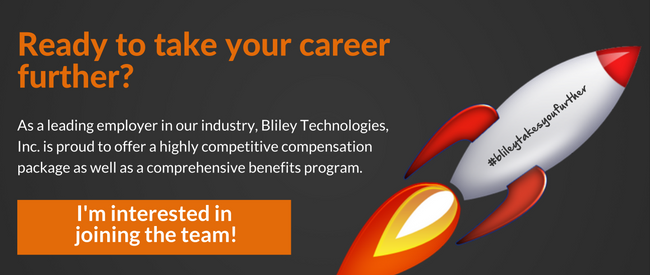
These are exciting times to be an RF engineer. With the advent of 5G, the Internet of Things, and the increasing expansion of the private sector into space, we are about to witness some extraordinary developments in radio frequency tech in the next decade.
There are a lot of engineers coming out of school who want to get in on the action. So, what are the traits that help an RF engineer succeed? What distinguishes those who advance in their careers and land the most desirable positions from those who don’t? Let’s explore this in detail and break down 3 of the most important qualities that make a successful RF engineer.
3 Traits of a Successful RF Engineer
1. They Never Stop Learning

This applies to any field of engineering, but with a rapidly evolving industry like this one, it is doubly true. Degrees and other credentials are important, but RF engineers who succeed in their careers understand that their education doesn’t end when they graduate and get their license.
They stay abreast of developments in the industry and how technology improves and changes. They regularly read blogs, publications and take courses pertaining to their industry. A lifelong intellectual curiosity and a continuous desire to improve are core traits of a successful RF engineer. These traits increase both their personal value in the marketplace and give the firms that employ them an edge over the competition.
2. They Have Their Eyes on the Big Picture and the Details

Some people think you are either born a visionary type or a “details person” who likes to focus on the minutiae of a project. But the truth is that this is something of a false dichotomy when it comes to engineering.
There is no question that being detail-oriented is absolutely essential for an RF engineer. The further down the production line a problem goes before it is detected, the more expensive it will be to correct. A slight mistake can lead to costly delays and defective products, massive problems for clients, and possibly dangerous situations, depending on the system (radar, communication for aircraft/spacecraft, etc.) RF engineers who excel in their profession are the ones who pay meticulous attention to detail.
At the same time, they must also develop a bigger picture, systems-level understanding of how everything fits together on a given project. This is especially important as engineers advance into leadership positions. A skilled RF engineer is able to take a step back, clearly envision the entire system they are working on, and understand how a change made in one area can affect how well the whole system will work.
3. They Are Good Communicators

Technical know-how and the ability to scale your thinking are is essential qualities for any engineer, but that’s still only part of the equation. One of the most important traits a successful RF engineer has is not technical in nature at all: strong communication skills.
The ability to communicate clearly and effectively with team members and other stakeholders in the project is essential to advancing in any engineering discipline. Many times, an RF engineer might have to discuss a challenge a project is facing to people who don’t share their educational or professional background, like a client representative, government official or someone on the company board. Engineers who are able to explain complicated esoteric issues in ways that non-engineers can understand have a huge advantage in their profession.
Strong communication and interpersonal skills also lend themselves to working with a team. Good RF engineers can not only give clear directions but follow them as well. They are also good listeners and are able to make an effort to understand the points of view of other team members and stakeholders. Good engineers are confident in their skills and judgment, but they also understand their point of view is not the only one that matters. An additional benefit to being a good listener is that it tends to make one more open-minded and flexible. These are more good qualities to have because they allow an RF engineer to be more receptive to trying new solutions that they may not have considered before.
Does any of this sound like you?
The industry is about to enter an exciting new chapter, and engineers who meet the criteria above are in high demand. At Bliley, we are always on the lookout skilled engineers who share the winning traits we’ve listed here. If you think you’re up to the task, read on to learn more about opportunities with a company at the forefront of RF tech and crystal oscillator design.






